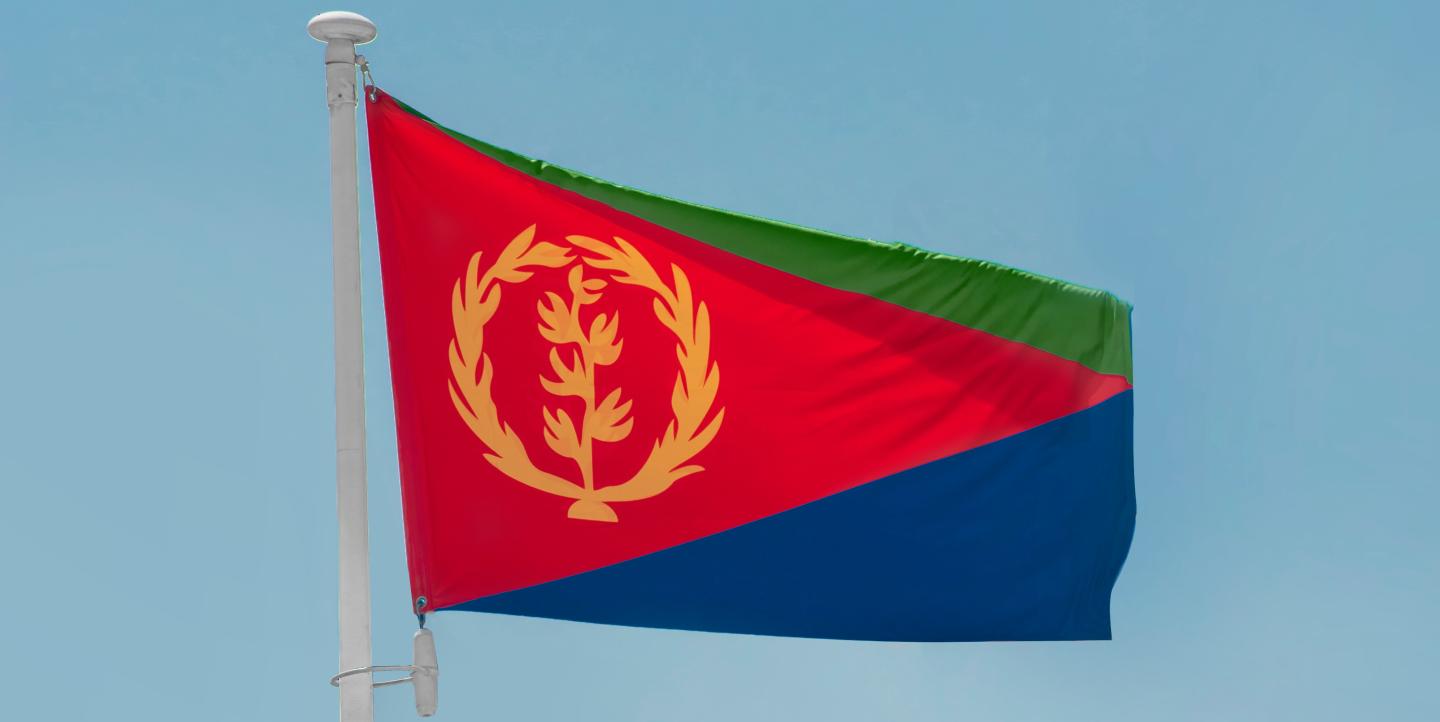North of Ethiopia, along the Red Sea lies Eritrea. Since gaining its independence in 1993, the country of 3.8 million has been ruled by a single dictator in a regime marked by widespread repression.
The administration of President Isaias Afwerki, who was never elected, has denied Eritreans their basic rights and freedoms, and committed crimes against humanity. In 2001, President Afwerki closed all of the country’s independent newspapers, and arrested journalists who remain incommunicado to this day. These journalists are today the longest-detained reporters globally.
During this time, telling Eritreans’ stories and informing the population has been almost impossible. Journalists and most dissenting voices have been forced into exile, arrested, jailed and tortured. There is no independent journalism in Eritrea, said Sadibou Marong, head of Reporters Without Borders’ (RSF) Sub-Saharan African bureau. “In a nutshell, it’s quite difficult for Eritreans to enjoy press freedom [or] freedom of expression,” he explained.
The situation is likely worse than documented, continued Marong, as tracking abuses in a country that doesn’t cooperate with international human rights organizations nor provides access to public information is difficult.
Here’s how exiled Eritrean journalists, writers and newsrooms continue to report on their country from abroad:
PEN Eritrea in Exile
Eritreans are inundated with propaganda alleging that those being punished in the country are “conspirators against the government,” “traitors,” or “agents of the West,” explained writer Awet Fissehaye. This works to justify the regime’s repression.
“We were trained to accept abuse [and] to take things [as] normal where they are not normal at all,” he said. ”It’s not easy to liberate yourself from this entanglement.”
Fissehaye is the director of PEN Eritrea in Exile, which launched in October 2014 to provide a space for journalists, writers, poets and other creatives to come together and advocate for the liberation of the country and its people.
“The darkness that the Eritrean government wants to create should be defeated by the light that we are trying to [spread],” said Fissehaye, who fled Eritrea twice, most recently in 2014. Today in exile in London, he had been imprisoned and tortured while still in Eritrea. He survived multiple near-death experiences while crossing the Sahara desert and the Mediterranean Sea leaving his native country: “Survivors of imprisonment [and] of the harsh treatment in the hands of the Eritrean government – we are telling the stories,” he said.
To reshape the narrative, PEN Eritrea in Exile verifies and shares information on social media about developments in the country. The organization hosts virtual events for Eritreans across the diaspora, awards champions of freedom of expression, publishes exiled Eritreans’ work, and is working to digitize local Eritrean newspapers from the early 2000s.
Last year, Kassahun Checole, founder of Africa World Press and the Red Sea Press, won the PEN Eritrea Freedom of Expression Award: “I feel honored because the award places me within the circle of those Eritreans who have paid and continue to pay a heavy price for acting on their patriotic duty to stand for democracy and freedom in our beloved country and Africa as a whole.”
Radio Erena
Roughly half of Eritreans have access to electricity, and one in five has internet access. One in 1,000 has a personal internet connection.
Given these limitations, satellite radio and TV have become the best ways for exiled newsrooms to reach audiences in the country.
With RSF’s support, Radio Erena, an independent radio station based in Paris, started broadcasting via satellite inside Eritrea in 2009. Keeping Eritreans informed with local, regional and global news, the station broadcasts in the country’s two main languages, Tigrinya and Arabic. The station also fights government-spread disinformation.
“Running after a piece of information daily where the country is locked is not an easy task,” said Amanuel Ghirmai, Radio Erena’s interim director and editor-in-chief, who joined the outlet six months after fleeing Eritrea in 2009.
Radio Erena is regarded by Eritreans as a neutral, credible source of information – one that about half a million people listen to at least once a week, according to a DW Akademie survey.
“We get fed up sometimes, we get tired, exhausted, but we never lose hope – I never lose hope,” said Ghirmai.
Erisat
Journalist Saba Tesfayohannes never returned to Eritrea after moving to the U.S. in 2002 to attend graduate school. It would be unsafe to do so due to her involvement in pro-democracy advocacy and human rights activism.
Based in Los Angeles today, Tesfayohannes regularly receives videos shared with her by those still inside her native Eritrea. She also meets with fellow exiled Eritreans who, though still afraid, choose to share their stories of life back home. “For the last 22 years, Eritrea has not only been a nightmare for journalists, but a nightmare for any breathing citizen there because you’re always controlled,” she said.
Witnessing the country’s repression from abroad, and learning from fellow exiled Eritreans that those still in the country watched foreign soap operas on satellite TV, in 2018 she co-founded a nonprofit TV station, Erisat, to deliver news inside Eritrea.
Initially relying on volunteers, Erisat now has a team of 25 full-time staff and volunteers scattered all over the world. The station operates 24 hours a day, seven days a week.
There were challenges along the way: In its first two years, Erisat struggled to cover its monthly $10,000 in operating costs. “We maxed out our credit cards, some of us took out our 401(k), some of us borrowed money,” she said. “We literally turned into professional beggars to sell the mission.”
Today, Erisat publishes news, runs TV shows, and offers educational content in four Eritrean languages.
“The children, the young people, I want them to have hope – hope that they can believe in Eritrea,” she said. “Right now, every person wants to leave Eritrea. Because they don’t see any hope.”
Remembering roots
For exiled Eritrean journalists, writers and human rights defenders, remembering their roots and why they left their native country is crucial. Once they have reached safety, recalling can serve as a driving force, said Yirgalem Fisseha, an exiled writer and poet in Berlin.
Fisseha was arrested in Eritrea without charge and trial in 2009. She was released in 2015, then imprisoned again in 2017 for four months after trying to flee. She escaped to Uganda soon after and has since lived in exile.
In an act of resistance, Fisseha titled the first book she wrote, “I’m alive,” in Tigrinya. “I was in [a] coma because of torture. I was in a hospital because of torture, so I never thought that I would be here and one day my voice would be heard,” she said.
In 2018, a year after fleeing to Uganda, Fisseha moved to Germany to take part in PEN Center Germany’s Writers-in-Exile program as a grantee.
Migrating and acclimating to different cultures, languages and isolation has been challenging. Even simple tasks such as buying a train ticket or using Google Maps could be frustrating. “When I made any mistakes, I would just laugh at myself, get entertained with myself,” she said. “I tell people I was reborn five years ago in Europe.”
Despite the struggles, Fisseha said she is grateful because she lives to tell her story. “Talking and writing about my experiences, being a voice for the people who are in prison – those activities give meaning to my life now,” she said. “Not talking about the experience, not talking about the prisoners would be another prison for me.”
Sharing her story and speaking up in the present is an investment toward a future in which Eritrean jails are empty and families reunited, believes Fisseha. “People might think that I’m struggling and fighting, but it’s part of healing for me as well,” she said. “I’m doing what I want to do. I’m doing what I have to do.”
Photo by aboodi vesakaran on Unsplash.


